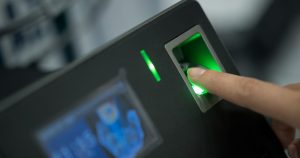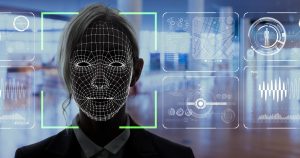Biometric security systems have evolved significantly, offering robust solutions for authentication and access control in various sectors. This article explores the latest advancements in biometric technology, their applications, benefits, and future prospects.
1. Introduction to Biometric Security Systems

Biometric security systems use unique biological traits such as fingerprints, iris patterns, and facial features for identification and verification purposes. Advancements in biometrics have enhanced security measures across industries, replacing traditional methods like passwords and PINs.
2. Types of Biometric Technologies
Modern biometric systems encompass a variety of technologies, including fingerprint recognition, iris scanning, facial recognition, voice authentication, and behavioral biometrics. Each technology offers distinct advantages in terms of accuracy, convenience, and resistance to fraud.
3. Enhanced Accuracy and Reliability
Recent innovations in biometric sensors and algorithms have significantly improved accuracy and reliability. Advanced machine learning algorithms analyze biometric data with greater precision, reducing false acceptance and rejection rates in authentication processes.
4. Applications in Access Control
Biometric security systems are widely used for access control in corporate offices, government buildings, airports, and healthcare facilities. These systems ensure only authorized individuals can enter secure areas, enhancing overall safety and minimizing security breaches.
5. Integration with IoT and AI
Integration of biometric systems with Internet of Things (IoT) devices and artificial intelligence (AI) enhances functionality and scalability. AI algorithms improve biometric recognition performance over time by learning from patterns in biometric data, ensuring adaptive and reliable security solutions.
6. Biometrics in Mobile Devices
Mobile devices increasingly incorporate biometric authentication features such as fingerprint scanners and facial recognition for unlocking devices and securing sensitive data. This trend reflects a shift towards convenient and secure authentication methods in the digital age.
7. Biometrics in Financial Transactions
Biometric security systems play a crucial role in securing financial transactions and online payments. Technologies like fingerprint and iris scanning provide secure authentication, protecting against identity theft and unauthorized access to banking and e-commerce platforms.
8. Privacy and Ethical Considerations
The widespread adoption of biometric technologies raises concerns about privacy and ethical implications. Regulations and standards ensure responsible use of biometric data, addressing issues such as consent, data protection, and transparency in biometric system deployment.
9. Biometrics in Healthcare

In healthcare, security systems safeguard patient records, medication dispensing, and access to medical facilities. Biometric authentication prevents unauthorized access to sensitive information, ensuring compliance with healthcare regulations and enhancing patient confidentiality.
10. Future Trends in Biometric Security Systems
Future advancements in biometric security systems will focus on enhancing interoperability, usability, and security. Anticipated developments include multimodal biometrics combining multiple identification factors, continuous authentication methods, and biometric wearables for seamless integration into daily life.
Conclusion
Advancements in biometric security systems harness the power of cloud technology to deliver seamless, scalable, and secure solutions. By integrating real-time analytics and adaptive technologies, these systems provide robust authentication, enhancing user experience and safeguarding digital ecosystems in an increasingly interconnected world.
FAQs
1. How do cloud services enhance biometric security systems?
Cloud services offer scalable storage, real-time processing, and advanced analytics for biometric data, enabling faster and more reliable authentication across various platforms.
2. What are the common applications of biometric security systems?
Biometric systems are widely used in mobile devices, banking, healthcare, government identification, and workplace access control.
3. Are biometric data stored securely in the cloud?
Yes, modern cloud services implement encryption, secure access protocols, and compliance with data protection regulations to ensure biometric data security.
4. What are the key challenges in biometric security?
Challenges include spoofing risks, user privacy concerns, and ensuring the accuracy of biometric data in diverse environmental conditions.
5. How do advancements in AI impact biometric security?
AI enhances biometric systems by improving pattern recognition, reducing false positives/negatives, and enabling adaptive authentication for dynamic security threats.












